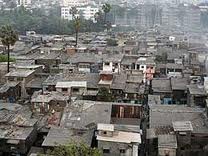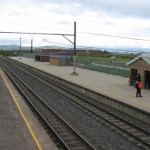Michael Regnier – Life And Health In Delhi’s Slums
No comments yetmosaicscience.com. September 2014. The smell of urine and human excrement betrays the entrance to the slum. There is a line of fresh turds alongside the main road. Most look healthy enough; a couple are what you might call loose.
Dilip Jha admits to feeling nervous. Ben Gilbert (Mosaic’s photographer) and I have asked him to show us around Delhi, including its slums to see where some of India’s poorest rural-to-urban migrants live, so Dilip, a senior research project manager at the South Asia Network for Chronic Disease, has brought us to Sector 7.
We turn left, down a side road, except that this street marks a social, political and moral boundary between two superposed cities. Ben and I walk about 50 metres before Dilip quietly but urgently suggests we go back to the main road.
At the junction, Ganchem sells freshly squeezed orange juice. Like everyone else in this slum, he is from Rajasthan and, like everyone else, he specialises in drumming at functions and weddings. It is only ever part-time work, so people have other jobs, often house-painting. They have done well to secure painting and drumming as their niche – other slums might specialise in rag-picking, bringing the city’s rubbish home on handcarts and sorting through it for plastic or paper scraps they can sell for a pittance. Migrants often find the only opportunities to make a living are doing the jobs too dirty, degrading or dangerous for anyone else.
Read more: http://mosaicscience.com/life-and-health-delhi-slums
You May Also Like
Comments
Leave a Reply







